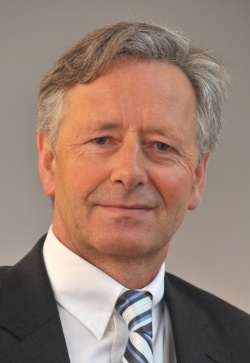The first European Hospital Conference
Directed by the Gesellschaft Deutscher Krankenhaustag (GDK) the EHC will open with an examination of and
debate on the current European health policy and the impact of the EU patients’ rights directive. Passed by the European Council of Ministers in February, these guidelines envisage patients having cross-border access to healthcare services, inclusive of a free choice of doctors and hospitals across the entire EU.

The EHC will be chaired by Georg Baum, Managing Director of the German Hospital Association (DKG) and since June elected president of the European Hospital and Healthcare Federation (HOPE), in conjunction with Heinz Kölking, President of the European Association of Hospital Managers (EAHM) and Dr João de Deus, President of the European Association of Senior Hospital Physicians (AEMH). Additionally, two experienced EU health politicians, Luxemburg Health Minister Mars Di Bartolomeo and policy officer Annika Nowak from the EU Commission, will discuss the shape of hospital organisation.
Although the European healthcare systems are very much geared to their own national control mechanisms, there are common grounds on an EU level regarding the patient’s rights directive. ‘The implications for hospitals will differ widely depending on their locations and the range of clinical service being offered,’ Heinz Kölking believes, though he adds: ‘Every healthcare institution will have to deal with issues such as the quality of structures, processes and, not to forget, outcomes.
There are also many legal, cultural and linguistic requirements that must be met by the organisation and staff.’ Georg Baum agrees that one of the effects on hospitals of the EU patients’ right directive will be that they must prepare to receive streams of foreign patients and this includes providing the necessary communication skills, within the hospital as well as for follow-up communications with patients’ physicians abroad: ‘Many hospitals are actually already responding to enquiries from abroad and also actively promoting their services abroad. I think it is a legitimate approach for each country to offer its medical treatment capacities and qualities on the international healthcare market.
The cross-border freedom of choice can actually promote quality competition amongst hospitals and doctors.’ The directive requires that all EU Member States provide transparency about their range of services, prices and quality of treatment. Dr João de Deus sees three key strategies to achieve standards that could guarantee treatment quality and patient safety of healthcare in a cross-border environment, where health professionals and patients can move freely within the EU: ‘First, the introduction of risk management routines; for example, by developing guidelines and indicators as a part of a quality assessment system in the healthcare sector,’ he says. ‘Second, the involvement of senior physicians in hospital management is crucial. Doctors take responsibilities for many hospital decisions that influence performance and quality of care and therefore interrelate with other areas in the hospital and human resources, financial success, healthcare policy and economics. The third aspect is the evaluation of pre- and post-graduate education.’ Whilst in the Bologna Process the academic training has reached a high international standard, Europe faces a huge problem of harmonising medical training and therefore in a consistent recognition of professional qualifications in working life. When it comes to specialisation, the countries have very different rules for training periods, certification and validation processes.
The lack of qualified doctors and nurses, as well as younger medics, is a major concern to all three presidents. ‘We, as members of the associations, want to develop, exchange and compare ideas regarding the problems and challenges we face.
We also make a modest contribution to a unified Europe, which we don’t understand as a Europe that is centrally governed but that shares values such as solidarity and subsidiarity,’ concludes Heinz Kölking. ‘These issues require intelligent management that can create successful structures and processes – including internal and external communication.’Dr de Deus concurs that very different views are held on European healthcare policy, which is why he believes the debate at this year’s 1st EHC will be ‘very lively’. It will, he says, ‘offer a great opportunity for our societies to debate fairly and squarely and –
hopefully – we will come to some shared conclusions.’
Up to 170 top decision makers from European hospitals are expected to participate in this predictably animated gathering.
*Simultaneous translations: English, French , German.
The 1st European Hospital
Conference at Medica
10 a.m. – 5 p.m. 18 November
Room M, CCD-Ost (East)
15.11.2011





